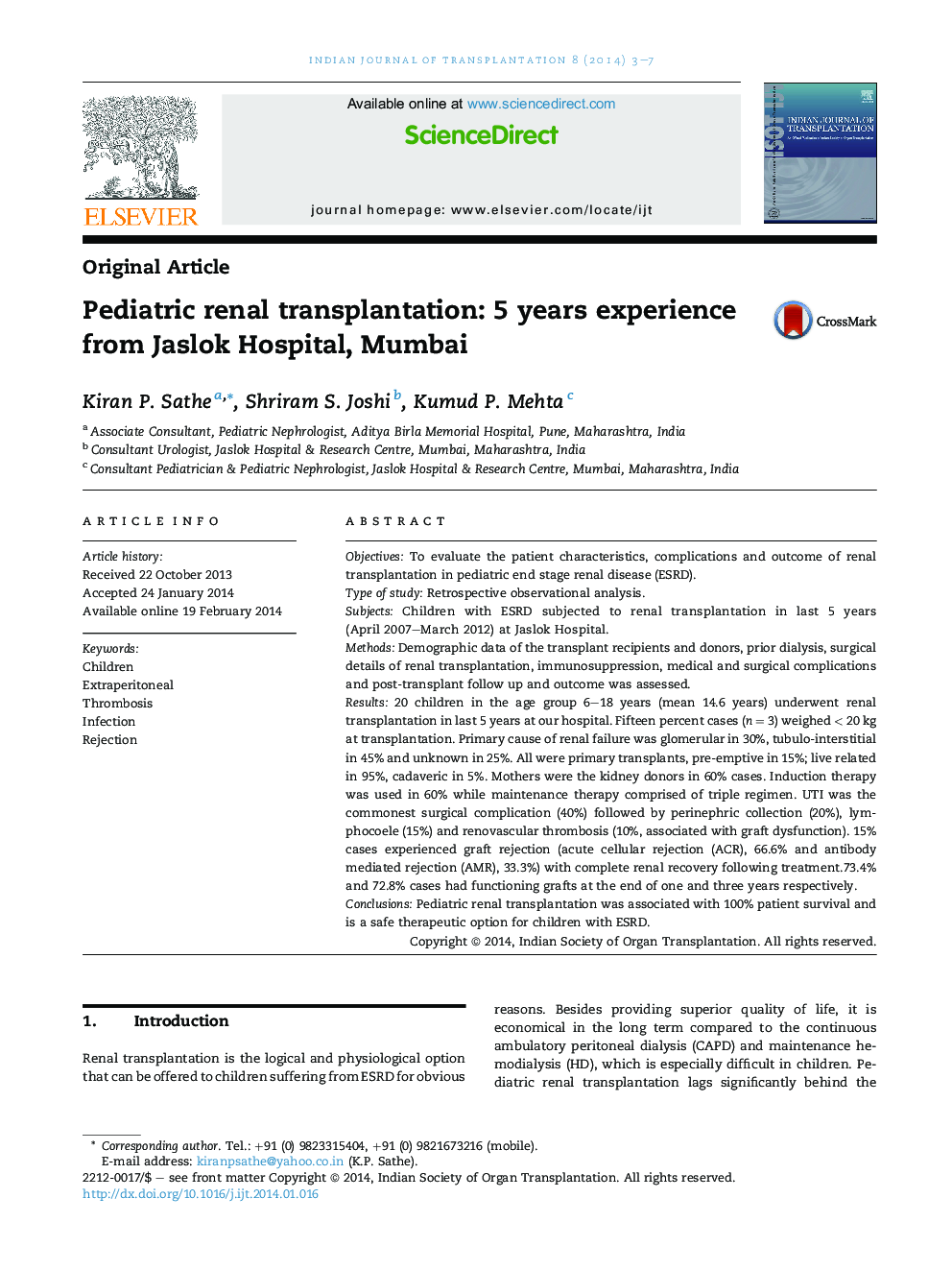| Article ID | Journal | Published Year | Pages | File Type |
|---|---|---|---|---|
| 3338289 | Indian Journal of Transplantation | 2014 | 5 Pages |
ObjectivesTo evaluate the patient characteristics, complications and outcome of renal transplantation in pediatric end stage renal disease (ESRD).Type of studyRetrospective observational analysis.SubjectsChildren with ESRD subjected to renal transplantation in last 5 years (April 2007–March 2012) at Jaslok Hospital.MethodsDemographic data of the transplant recipients and donors, prior dialysis, surgical details of renal transplantation, immunosuppression, medical and surgical complications and post-transplant follow up and outcome was assessed.Results20 children in the age group 6–18 years (mean 14.6 years) underwent renal transplantation in last 5 years at our hospital. Fifteen percent cases (n = 3) weighed < 20 kg at transplantation. Primary cause of renal failure was glomerular in 30%, tubulo-interstitial in 45% and unknown in 25%. All were primary transplants, pre-emptive in 15%; live related in 95%, cadaveric in 5%. Mothers were the kidney donors in 60% cases. Induction therapy was used in 60% while maintenance therapy comprised of triple regimen. UTI was the commonest surgical complication (40%) followed by perinephric collection (20%), lymphocoele (15%) and renovascular thrombosis (10%, associated with graft dysfunction). 15% cases experienced graft rejection (acute cellular rejection (ACR), 66.6% and antibody mediated rejection (AMR), 33.3%) with complete renal recovery following treatment.73.4% and 72.8% cases had functioning grafts at the end of one and three years respectively.ConclusionsPediatric renal transplantation was associated with 100% patient survival and is a safe therapeutic option for children with ESRD.
